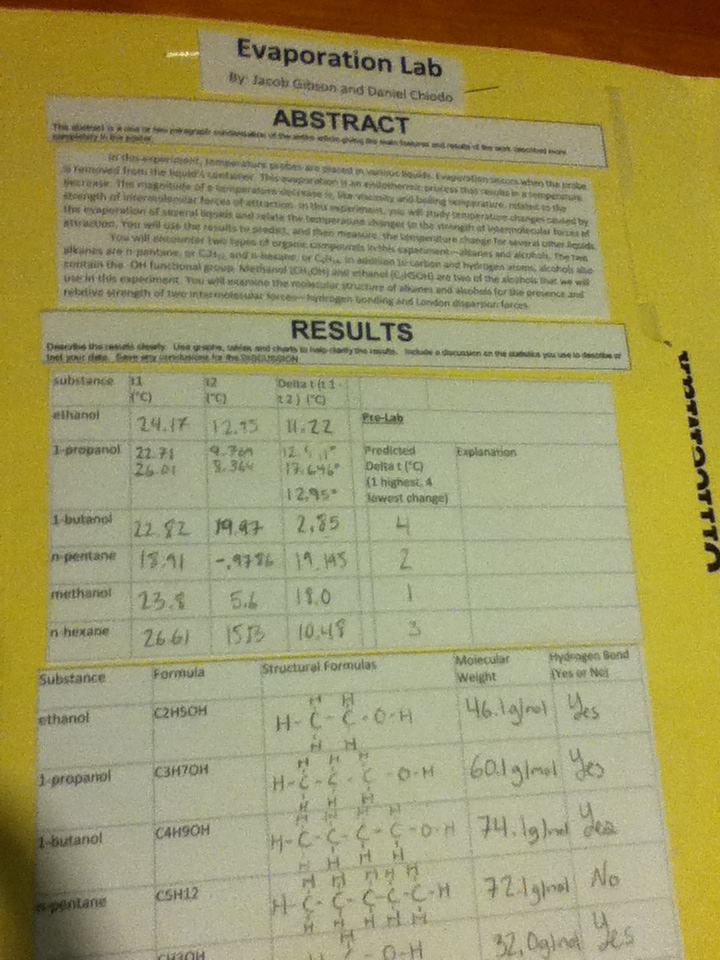WHAT AM I DOING TO HELP KIDS ACHIEVE?
HOW DO I KNOW WHEN THEY ARE THERE?
WHAT IS THE EVIDENCE?
So we did the mini posters on intermolecular forces. To quickly summarize...here was the lab. The class broke up into groups. Each group did several trials on the evaporation of one chemical. The six chemicals were four alcohols and two alkanes. Essentially, the fewer intermolecular forces and less hydrogen bonding lead to faster evaporation and a huge quick drop in temperature (big difference between the maximum temp and minimum temperature). More intermolecular forces (more weight and more hydrogen bonding) found that it took a long time for evaporation to occur and small change in temperature.
So I gave a short answer question on a test. They were presented with lab data for the change in temperature when methanol, ethanol and propanol evaporates and had to identify which data fit with the respective chemical. Most students got it right. Then I asked them where methane would be on the graph and they also got that right. There is an interesting feature...I forgot to tell first bell the structure of methane yet they were mostly able to correctly deduce it and get the correct answer. Is it due to the flipped assignment on naming and IMF? Was it due more to the student centered lab??? Not sure..but something appears to be working on a small level....




